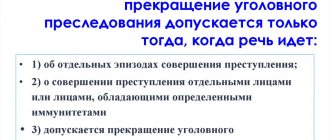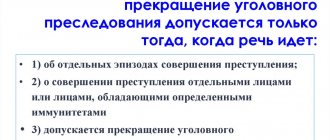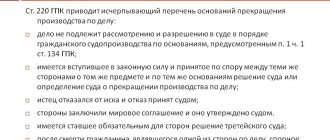ST 161 of the Criminal Code of the Russian Federation.
1. Robbery, that is, the open theft of someone else’s property, is punishable by compulsory labor for a term of up to four hundred eighty hours, or correctional labor for a term of up to two years, or restriction of liberty for a term of two to four years, or forced labor for a term of up to four years. , or arrest for a term of up to six months, or imprisonment for a term of up to four years.
2. Robbery committed: a) by a group of persons by prior conspiracy; b) has become invalid; c) with illegal entry into a home, premises or other storage; d) using violence that is not dangerous to life or health, or with the threat of using such violence; e) on a large scale - is punishable by forced labor for a term of up to five years, or by imprisonment for a term of up to seven years, with or without a fine in the amount of up to ten thousand rubles or in the amount of the wages or other income of the convicted person for a period of up to one month, and with restriction of freedom for a term of up to one year or without it.
3. Robbery committed: a) by an organized group; b) on an especially large scale, - c) has become invalid, - shall be punishable by imprisonment for a term of six to twelve years with or without a fine in the amount of up to one million rubles or in the amount of the wages or other income of the convicted person for a period of up to five years, and with or without restriction of freedom for a term of up to two years.
Commentary to Art. 161 Criminal Code
1. Robbery as a form of theft is characterized by the open theft of someone else's property.
2. Open in accordance with paragraph 3 of the Resolution of the Plenum of the Supreme Court of the Russian Federation dated December 27, 2002 N 29 “On judicial practice in cases of theft, robbery and robbery” is recognized as theft that is committed in the presence of the owner or other owner of the property or on in the mind of strangers, when the person committing this crime is aware that those present understand the illegal nature of his actions, regardless of whether they took measures to suppress these actions or not. The openness of theft is assessed according to a subjective criterion: theft will be considered open if, in the opinion of the perpetrator, it is obviously illegal in the eyes of those around him.
3. The moment of completion of the crime coincides with a similar moment in relation to the theft of someone else’s property.
4. The qualifying signs of robbery (parts 2 - 3) generally coincide with similar signs of Article 158 of the Criminal Code of the Russian Federation.
The use of violence that is not dangerous to life or health (clause “d” of Part 2) should be understood as beatings or other violent acts associated with causing physical pain to the victim or restricting his freedom (tying his hands, using handcuffs, leaving him in a closed room). premises, etc.) (clause 21 of the Resolution of the Plenum of the Supreme Court of the Russian Federation of December 27, 2002 No. 29). The threat of such violence covers a real and present threat of beatings or other violent actions associated with causing physical pain to the victim or restricting his freedom.
In this case, the object of violence (threat) can be the owner, another owner of the property, their relatives (by influencing whom the perpetrator is trying to influence the owner or holder), as well as persons who are preventing or, in the opinion of the perpetrator, can prevent the theft. Accordingly, violence applied “to property” (for example, tearing off a hat, snatching a bag) does not qualify robbery as violent.
In addition, the violence used (threat) must be a means of taking possession or retaining someone else's property immediately after taking it; if, after a secret theft, the perpetrator uses violence (threat) in order to avoid arrest, then the act is qualified as theft with possible qualification in conjunction with Art. 116 of the Criminal Code (clause 3 of the Resolution of the Plenum of the Supreme Court of the USSR of September 5, 1986 N 11 “On judicial practice in cases of crimes against personal property”).
Federal Law of December 8, 2003 No. 161-FZ
RUSSIAN FEDERATION
THE FEDERAL LAW
On bringing the Criminal Procedure Code of the Russian Federation and other legislative acts into compliance with the Federal Law “On Amendments and Additions to the Criminal Code of the Russian Federation”
Adopted by the State Duma on November 21, 2003
Approved by the Federation Council on November 26, 2003
(As amended by federal laws dated March 11, 2004 No. 12-FZ; dated June 5, 2007 No. 87-FZ; dated July 24, 2007 No. 210-FZ; dated October 2, 2007 No. 229-FZ; dated December 26, 2008 No. 293-FZ; dated 06/03/2009 No. 106-FZ; dated 12/27/2009 No. 377-FZ; dated 12/29/2010 No. 433-FZ; dated 02/07/2011 No. 3-FZ; dated 07/03/2016 No. 305-FZ; dated 07/03/2016 No. 329-FZ)
Article 1
Introduce into the Criminal Procedure Code of the Russian Federation (Collected Legislation of the Russian Federation, 2001, No. 52, Art. 4921; 2002, No. 22, Art. 2027; No. 30, Art. 3015, 3020, 3029; No. 44, Art. 4298; 2003, No. 27, Art. 2700, 2706; No. 28, Art. 2880) the following changes and additions:
1) Article 26 is declared invalid;
2) in part two of Article 27, delete the numbers “, 26”;
3) in article 31:
in part one:
the numbers “109” are replaced with the words “109 parts first and second,” after the words “1711 parts first,” add the words “174 parts first, 1741 parts first,” and the numbers “184” are replaced with the words “184 parts first, third and fourth.” , the words “198 part one, 200 part two” should be replaced with the words “198, 199 part one, 1991 part one”;
the words “228 parts one and five” should be replaced with the words “228 parts one, 2282”;
the numbers “265,” should be deleted, after the words “274 as part one,” add the words “282 as part one, 2851 as part one, 2852 as part one,”;
in paragraph 1 of part three, the words “152 part three,” shall be deleted;
4) add the words “and courts” to part two of Article 52;
5) in Article 108:
part one should be supplemented with a new second sentence as follows: “When choosing a preventive measure in the form of detention, the judge’s decision must indicate specific factual circumstances on the basis of which the judge made such a decision.”;
add part seven1 as follows:
"71. If a request to select a preventive measure in the form of detention in relation to a suspect or accused is refused, the judge, on his own initiative, has the right, if there are grounds provided for in Article 97 of this Code, and taking into account the circumstances specified in Article 99 of this Code, to choose in relation to the suspect or the accused a preventive measure in the form of bail or house arrest.”;
Part eleven should be supplemented with the following sentences: “The decision of the cassation court to cancel the judge’s decision to choose detention as a preventive measure is subject to immediate execution. The decision of the cassation court may be appealed in the manner of supervision according to the rules established by Chapter 48 of this Code.”;
6) part one of Article 115 should be stated as follows:
"1. To ensure the execution of a sentence in terms of a civil claim, other property penalties or possible confiscation of property obtained as a result of criminal actions or acquired by criminal means, the prosecutor, as well as the inquiry officer or investigator with the consent of the prosecutor, file a petition with the court to seize the property of the suspect, accused or persons who are legally liable for their actions. The court considers the petition in the manner established by Article 165 of this Code. When deciding on the seizure of property to ensure possible confiscation, the court must indicate the specific factual circumstances on the basis of which it made such a decision.”;
7) add part three of Article 125 with the following sentence: “Complaints subject to consideration by the court are considered in open court, except for the cases provided for in part two of Article 241 of this Code.”;
 in paragraph 1 of part three of Article 150:
in paragraph 1 of part three of Article 150:
the words “123 parts one and two” are replaced with the words “123 parts one,” the numbers “182,” and the numbers “200,” are deleted, the words “213 parts one and two” are replaced with the words “213 parts one”;
the words “228 parts one and five” should be replaced with the words “228 parts one, 2282”;
replace the numbers “241 – 245” with the words “241 as part one, 242, 243 – 245”, and delete the words “264 as part one”;
9) in article 151:
in part two:
subparagraph “a” of paragraph 1 after the words “127 parts second and third,” add the words “1271 parts second and third, 1272 parts second and third,”;
in point 3:
after the numbers “124,” add the numbers “1271, 1272,”, delete the numbers “152,” and replace the words “159 parts of the second and third, 160 parts of the second and third” with the words “159 parts of the second - fourth, 160 parts of the second - fourth ", the numbers "195 - 197, 198, 199" are replaced by the numbers "195 - 1992", the words "213 part of the third" are replaced by the words "213 part of the second", the words "219 part of the second, 220 part of the second" are replaced by the words "219 parts of the second" and third, 220 parts second and third";
the words “228 parts two - four” should be replaced with the words “228 parts two, 2281”;
the words “240 parts second and third” are replaced with the words “240 parts second and third, 241 parts second and third, 2421”, the words “264 parts second and third” are replaced with the numbers “264”, the numbers “265” are deleted, the words “313 part two” » replace with the words “313 parts two and three”;
(Paragraph no longer in force - Federal Law dated July 3, 2016 No. 329-FZ)
in part three:
in paragraph 6, replace the words “part of the second article” with the word “article”;
(Paragraph no longer in force - Federal Law dated July 3, 2016 No. 329-FZ)
in part five:
the words “159 parts second and third, 160 parts second and third” should be replaced with the words “159 parts second – fourth, 160 parts second – fourth”;
the words “228 parts three and four” should be replaced with the words “228 parts two, 2281”;
in part six, replace the numbers “285, 286” with the numbers “285, 2851, 2852, 286”;
10) in part four of Article 213, replace the words “Articles 25, 26” with the words “Article 25”;
11) in part two of Article 239, delete the numbers “, 26”;
12) in article 241:
add part two1 with the following content:
"21. The ruling or court order to conduct a closed trial must indicate the specific factual circumstances on the basis of which the court made this decision.”;
Part five, after the word “conduct”, is supplemented with the words “audio recording and”, the words “and with the consent of the parties, if this does not create obstacles to the trial. Audio recording is not allowed if it creates an obstacle to legal proceedings” to be deleted;
13) in paragraph 3 of Article 254, delete the numbers “, 26”;
14) (Repealed - Federal Law dated December 29, 2010 No. 433-FZ)
15) in article 396:
in the first digit, “, 18” should be deleted;
part four after the words “in points” is added with the numbers “41,”;
add part four1 with the following content:
"41. The issues specified in paragraph 18 of Article 397 of this Code are resolved by the court at the place of detention of the convicted person.”;
16) in article 397:
in point 2:
in subparagraph “a” the words “compulsory labor, correctional labor or arrest” shall be deleted;
in subparagraph “b” the words “restriction of freedom or arrest” should be deleted;
in subparagraph “c” the words “restriction of freedom, arrest or imprisonment” shall be deleted;
in subparagraph “d” the words “deprivation of liberty” should be deleted;
in paragraph 4, the words “and also on the abolition of parole” should be deleted;
add paragraph 41 with the following content:
“41) on the cancellation of parole - in accordance with Article 79 of the Criminal Code of the Russian Federation;”;
paragraph 18 should be stated as follows:
“18) on the detention of a convicted person who has escaped in order to evade serving a sentence in the form of a fine, compulsory labor, correctional labor or restriction of freedom, until the consideration of the issue specified in paragraph 2 of this article, but for no more than 30 days;”;
17) in part two of Article 398, replace the words “one year” with the words “three years”;
18) in article 399:
part one should be stated as follows:
"1. Issues related to the execution of the sentence are considered by the court:
1) at the request of the rehabilitated person - in the case specified in paragraph 1 of Article 397 of this Code;
2) at the request of the convicted person - in the cases specified in paragraphs 4, 6, 9, 11 - 15 of Article 397 and parts one and two of Article 398 of this Code;
3) upon the proposal of the internal affairs body at the place of detention of the convicted person - in the case specified in paragraph 18 of Article 397 of this Code;
4) taking into account the requirements of Articles 469 - 472 of this Code - in the cases specified in paragraphs 20 and 21 of Article 397 of this Code;
5) upon the proposal of the institution or body executing the punishment - in all other cases specified in Article 397 of this Code.”;
part five is declared invalid;
19) (Repealed - Federal Law dated December 29, 2010 No. 433-FZ)
20) in part one of Article 427, replace the words “the minor accused committed this crime for the first time and his correction” with the words “correction of the minor accused”;
21) part two of Article 432, after the words “about a crime of moderate gravity,” shall be supplemented with the words “or a serious crime, with the exception of the crimes specified in part five of Article 92 of the Criminal Code of the Russian Federation,”;
22) in part four of Article 433, replace the words “those in need of treatment for alcoholism or drug addiction, as well as persons specified in part two of Article 99 of the Criminal Code of the Russian Federation” with the words “specified in part two of Article 99 of the Criminal Code of the Russian Federation and”;
23) (Repealed - Federal Law dated June 5, 2007 No. 87-FZ)
24) (Repealed - Federal Law dated June 5, 2007 No. 87-FZ)
Article 2
Introduce into the Criminal Executive Code of the Russian Federation (Collected Legislation of the Russian Federation, 1997, No. 2, Art. 198; 1998, No. 30, Art. 3613; 1999, No. 12, Art. 1406; 2001, No. 11, Art. 1002; No. 13, Art. 1140; No. 26, Art. 2589; 2003, No. 24, Art. 2250) the following changes and additions:
1) in article 12:
add the words “or recovery” to the second sentence of part two;
in part four, the words “if all available domestic remedies for convicted persons have been exhausted” shall be deleted;
add part six1 with the following content:
"61. Convicts have the right to psychological assistance provided by employees of the psychological service of the correctional institution and other persons entitled to provide such assistance. Participation of convicts in activities related to the provision of psychological assistance is carried out only with their consent.”;
2) in article 14:
the first sentence of part four should be supplemented with the words “belonging to religious associations registered in the established order, at the choice of the convicted”;
part five is declared invalid;
3) part one of Article 15 should be stated as follows:
"1. Convicts can send proposals, statements, petitions and complaints.”;
4) in article 16:
part one should be stated as follows:
"1. Punishment in the form of a fine is carried out by bailiffs at the place of residence (work) of the convicted person.”;
part six is declared invalid;
5) in article 18:
in part one, the words “patients with alcoholism or drug addiction, as well as” should be deleted;
in part two, the words “sick of alcoholism or drug addiction, as well as” and the words “with the possibility of causing other significant harm to these convicts or” should be deleted;
part three after the words “articles for patients” should be supplemented with the words “alcoholism, drug addiction”;
6) in article 20:
in part two, replace the words “In cases provided for by the legislation of the Russian Federation” with the words “In accordance with the legislation of the Russian Federation”;
in part three, the words “confiscation of property,” should be deleted;
7) in article 24:
in part one:
paragraph “a” after the words “Federal Assembly of the Russian Federation” shall be supplemented with the words “Ombudsman for Human Rights in the Russian Federation”, after the words “subjects of the Russian Federation” shall be supplemented with the words “Ombudsman for Human Rights in the constituent entities of the Russian Federation”;
paragraph “d” after the word “members” should be supplemented with the words “public observers”;
part two is declared invalid;
 in article 25:
in article 25:
in part one, replace the words “objects determined by the authority” with the words “enterprises subordinate to the authorities”;
in part three, the words “and control the timely transfer of financial resources to the relevant budgets for the work performed by convicts” should be deleted;
9) Article 26 shall be supplemented with part four as follows:
"4. Compulsory work is performed by the convicted person free of charge.”;
10) part two of Article 28 is declared invalid;
11) in article 30:
the words “maliciously evading” should be replaced with the words “1. Maliciously evading";
add part two with the following content:
"2. A convict who maliciously evades serving his sentence, whose whereabouts are unknown, is put on the wanted list and can be detained for up to 48 hours. This period may be extended by the court to 30 days.”;
12) Articles 31 and 32 shall be stated as follows:
“Article 31. Procedure for executing punishment in the form of a fine
1. A person sentenced to a fine without payment in installments is obliged to pay the fine within 30 days from the date the court verdict enters into legal force.
2. If the convicted person is unable to pay the fine at once, the court, at his request and the conclusion of the bailiff, may spread the payment of the fine over a period of up to three years.
3. A person sentenced to a fine with installment payment, as well as a convicted person in respect of whom the court, in accordance with part two of this article, decided to pay the fine in installments, are obliged to pay the first part of the fine within 30 days from the date the sentence or court decision entered into legal force . The convicted person must pay the remaining portions of the fine monthly no later than the last day of each subsequent month.
Article 32. Malicious evasion of payment of a fine
1. A convicted person who has not paid a fine or part of a fine within the time period established by parts one and three of Article 31 of this Code is considered to be maliciously evading payment of a fine.
2. In relation to a convicted person who is maliciously evading payment of a fine imposed as the main punishment, the bailiff, no earlier than 10 but no later than 30 days from the date of expiration of the deadline for payment specified in parts one and three of Article 31 of this Code, sends submission to the court to replace the fine with another type of punishment in accordance with part five of Article 46 of the Criminal Code of the Russian Federation.
3. In relation to a convicted person who maliciously evades payment of a fine imposed as an additional punishment, the bailiff shall collect the fine in a forcible manner provided for by the civil legislation of the Russian Federation.
4. A convicted person who maliciously evades serving his sentence, whose whereabouts are unknown, is put on the wanted list and may be detained for up to 48 hours. This period may be extended by the court to 30 days.”;
13) Article 37 is supplemented with the words “as well as about changing the place of residence”;
14) in article 39:
part one should be stated as follows:
"1. Correctional labor is served in places determined by local government bodies in agreement with penal inspections, but in the area of residence of the convicted person.”;
in part two, the words “sent to serve the sentence no later than 15 days” should be replaced with the words “sent by the penal inspections to serve the sentence no later than 30 days”;
part three after the words “educational work;” add the words “with the participation of police officers in the manner prescribed by the legislation of the Russian Federation”, the words “, if necessary, send them to the employment service for employment” replace the words “; apply to local government bodies on the issue of changing the place of convicts serving correctional labor”, the words “; issue permission for the dismissal of convicted persons from work at their own request during the period of serving their sentence” delete;
15) part four of article 40 should be stated as follows:
"4. A convicted person does not have the right to refuse a job offered to him.”;
16) Article 41 is declared invalid;
17) in article 42:
Parts two and three should be stated as follows:
"2. The beginning of the term of serving correctional labor is the day the convicted person goes to work.
3. The time during which the convicted person did not work for good reasons is not counted towards the term of serving correctional labor.”;
(Paragraph no longer in force - Federal Law dated 03.06.2009 No. 106-FZ)
18) Article 45 is declared invalid;
19) in article 46:
in part one:
paragraph “a” should be stated as follows:
“a) failure to show up for work without good reason within five days from the date of receipt of the order from the penal inspection;”;
paragraph “c” is declared invalid;
part two should be supplemented with the words “and also oblige the convicted person to appear at the penal inspection for registration up to two times a month”;
in part four, replace the words “with the sanction of the prosecutor for a period of up to 30 days” with the words “for a period of up to 48 hours”, and add the following sentence: “This period may be extended by the court up to 30 days.”;
20) (Repealed - Federal Law dated December 27, 2009 No. 377-FZ)
21) part one of Article 49 should be stated as follows:
"1. The term of restriction of freedom is calculated from the day the convicted person arrives at the correctional facility. Article 58. Responsibility for violation of the procedure and conditions for serving restriction of freedom and for malicious evasion of serving restriction of freedom
1. Violation of the procedure and conditions for serving a restriction of freedom is a violation of labor discipline, public order or the rules of residence established for a convicted person, unauthorized leaving the territory of a correctional center without good reason, failure to return or untimely return to the place of serving the sentence, leaving the place of work or place of residence for a period of not more than 24 hours, for which penalties were imposed on him in writing.
2. Convicts who violate labor discipline, public order or established rules of residence, as well as those who left the territory of the correctional center without good reason, who did not return or returned untimely to the place of serving their sentence, who left their place of work or place of residence for a period of no more than 24 hours, The administration of the correctional center may apply the following penalties:
a) reprimand;
b) prohibition from leaving the hostel at certain times of the day for up to one month;
c) placement in a disciplinary detention center in accordance with the internal regulations of correctional centers for a period of up to 15 days.
3. Malicious evasion from serving a sentence is the unauthorized leaving of the territory of a correctional center by a convicted person without good reason, failure to return or untimely
Second commentary to Art. 161 of the Criminal Code of the Russian Federation
1. The objective side of robbery is characterized by open, non-violent seizure of someone else's property. Open “is theft that is committed in the presence of the owner or other holder of property or in full view of strangers, when the person committing this crime is aware that those present understand the illegal nature of his actions, regardless of whether they took measures to suppress these actions or not” (clause 3 of the resolution of the Plenum of the Supreme Court of the Russian Federation dated December 27, 2002 No. 29).
2. Theft, which began as a secret theft, can develop into an open one if in the process of taking possession of property the thief is noticed, but he, ignoring this circumstance, continues his criminal actions and now openly takes possession of the property. The crime is considered completed from the moment the property is actually confiscated and the perpetrator has the opportunity to use it or dispose of it in any other way at his own discretion (clause 6 of the same resolution).
3. The subjective side of robbery is characterized by direct intent, the content of which includes, in particular, the awareness that the theft of someone else’s property is committed openly, in front of other persons who understand the criminal nature of the actions of the perpetrator.
4. The subject of the robbery is a person who has reached the age of 14 years.
5. Three qualifying features of robbery (clauses “a”, “c” and “e” of Part 2) coincide with the qualifying features of theft of the same name. But in relation to robbery, penetration into a home, premises or other storage facility has a qualifying value only if the culprit, even before the invasion, had the intention to steal someone else's property in an open way. In case of robbery, breaking into a home has the same legal meaning as breaking into a building or other storage facility.
During robbery, violence or the threat of violence that is not dangerous to life or health (clause “d”, part 2) can be applied not only to the owner or other owner of the property, but also to other persons who, in reality or in the opinion of the perpetrator, could prevent the theft . Violence that is not dangerous to life or health is understood as any physical impact on the victim, committed against or against his will, or other actions that limit his physical freedom, which do not cause harm to the health of the victim and do not by their nature pose a danger to the health of the victim .
6. Robbery is qualified as violent only if the use or threat of violence served as a means of taking possession of property or retaining it immediately after taking it. Therefore, the violence that the kidnapper uses to avoid arrest after the theft is completed does not turn it into robbery.
7. Particularly qualified robbery (Part 3 of Article 161 of the Criminal Code) is characterized by its commission by an organized group or on a particularly large scale. They have the same content as the previously discussed forms of theft.
Publications on logos-pravo.ru:
As stated in Part 1 of Article 161 of the Housing Code of the Russian Federation, the management of an apartment building must ensure favorable and safe living conditions for citizens and proper maintenance of common property in the apartment building. For more detailed comments on this part of the article, see the comments to Article 162 of the Housing Code of the Russian Federation (in particular, the link to the review “Responsibilities of a management company in the housing and communal services sector for maintenance and repair. Judicial practice”)
Responsibilities for routine repairs in case of arrears in payment of housing and communal services
We recommend an article with examples from judicial practice “Routine repairs of an apartment building in the presence of arrears in payment for the services of the management organization.”
According to Article 9 of the Law of December 29, 2004 N 189-FZ “On the Enactment of the Housing Code of the Russian Federation”, Section VIII of the Housing Code of the Russian Federation also applies to relations arising from previously concluded management agreements for apartment buildings (Section VIII includes Articles 161 – 165).






